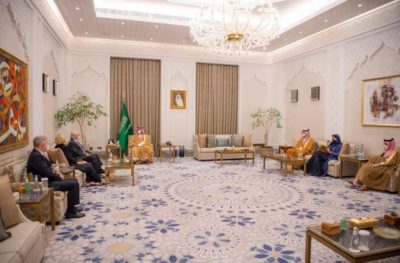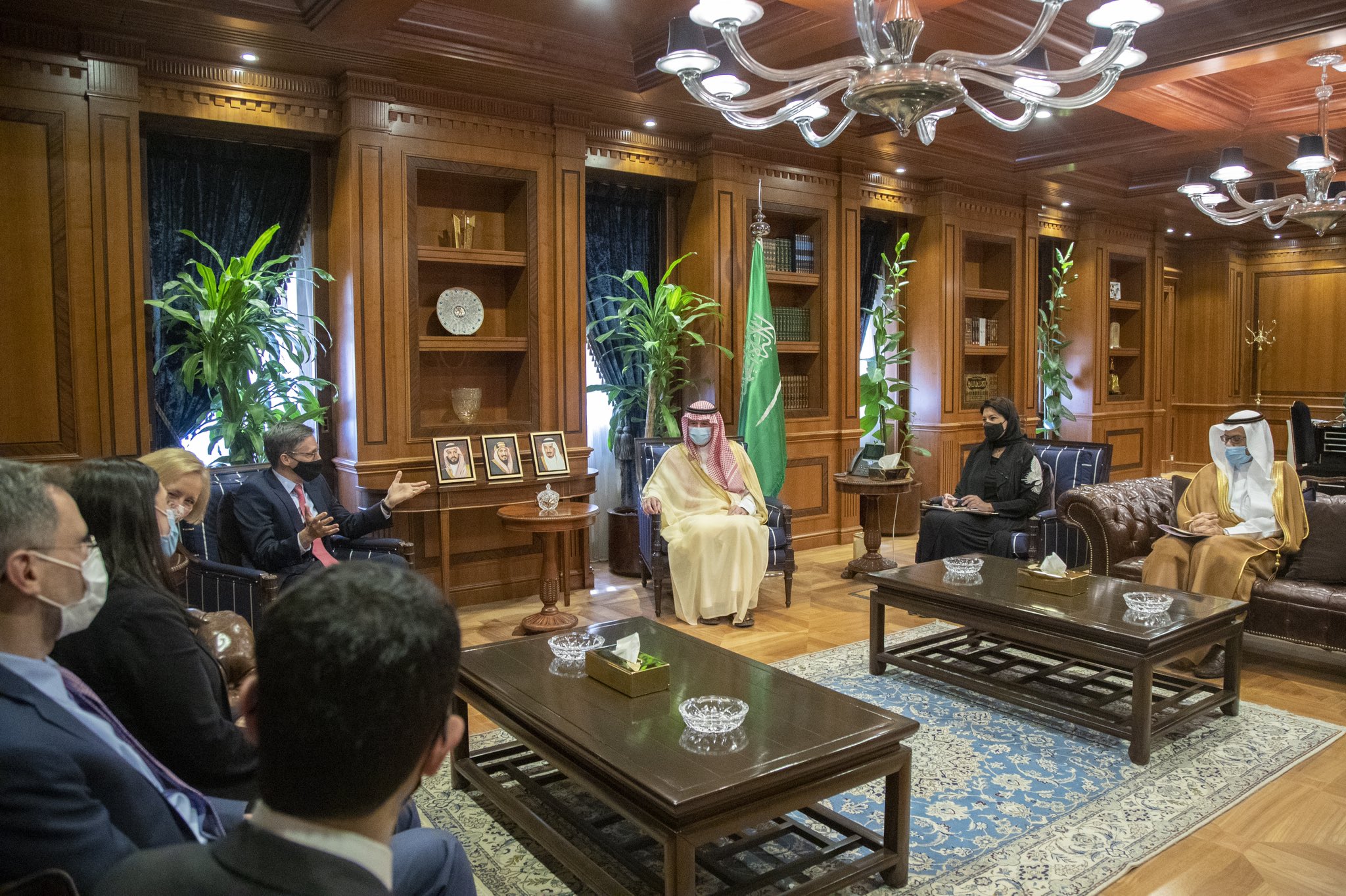Top diplomatic officials from the U.S. and Saudi Arabia met in Riyadh over the weekend to discuss bilateral relations and areas of mutual interest, according to official government accounts and information shared on Twitter.
Several meetings were held between the two allies. Saudi Arabia’s top diplomat, Prince Faisal bin Farhan Al-Saud, and the Kingdom’s Ambassador to the United States Princess Reema bint Bandar Al-Saud, both attended a meeting in Riyadh with Counselor of the U.S, Department of State, Derek Chollet, and his accompanying delegation.

Tim Lenderking and Crown Prince Mohammed bin Salman meet in Riyadh.
Chollet serves at the rank of Under Secretary as a senior policy advisor to the Secretary of State, Antony Blinken, on a wide range of issues and conducts special diplomatic assignments as directed by the Secretary.
Acting Assistant Secretary of State for Near Eastern Affairs Joey Hood, and Acting Assistant Secretary of Defense for International Security Affairs Dr. Mara Karlin, along with the Charge d’Affairs of the US embassy in Riyadh, Martina Strong, according to reports.
Separately, Crown Prince Mohammed bin Salman met with the U.S. Envoy for Yemen, Timothy Lenderking, to discuss joint efforts to implement a sustainable political resolution to the Yemeni crisis, Princess Reema bint Bandar said on Twitter.
“The cooperation between our two countries is key to establishing long lasting peace,” she added.
Another meeting was held that included Minister of State Adel Al-Jubeir, former Ambassador to the United States.
The trips come as the U.S. and Iran, through intermediaries in Vienna, discuss a return to the 2015 nuclear deal with world powers. Former President Donald Trump unilaterally abandoned the deal three years ago. According to the Associated Press, “the United Arab Emirates, Saudi Arabia and other Gulf allies, excluded from Obama-era nuclear negotiations, have repeatedly pressed for a seat at the table, insisting that any return to the accord must address Iran’s ballistic missile program and support for regional proxies.”









